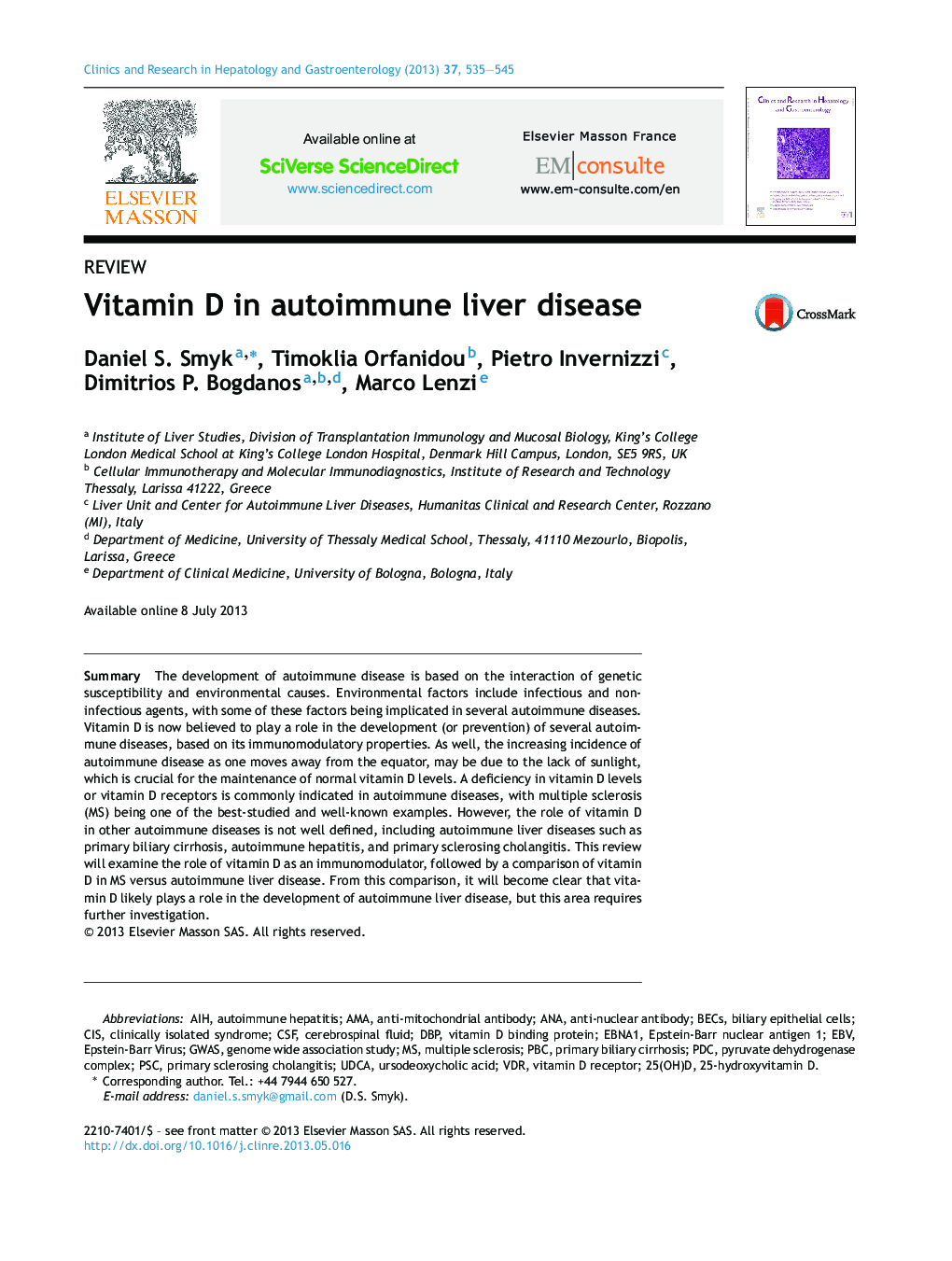| Article ID | Journal | Published Year | Pages | File Type |
|---|---|---|---|---|
| 3286533 | Clinics and Research in Hepatology and Gastroenterology | 2013 | 11 Pages |
SummaryThe development of autoimmune disease is based on the interaction of genetic susceptibility and environmental causes. Environmental factors include infectious and non-infectious agents, with some of these factors being implicated in several autoimmune diseases. Vitamin D is now believed to play a role in the development (or prevention) of several autoimmune diseases, based on its immunomodulatory properties. As well, the increasing incidence of autoimmune disease as one moves away from the equator, may be due to the lack of sunlight, which is crucial for the maintenance of normal vitamin D levels. A deficiency in vitamin D levels or vitamin D receptors is commonly indicated in autoimmune diseases, with multiple sclerosis (MS) being one of the best-studied and well-known examples. However, the role of vitamin D in other autoimmune diseases is not well defined, including autoimmune liver diseases such as primary biliary cirrhosis, autoimmune hepatitis, and primary sclerosing cholangitis. This review will examine the role of vitamin D as an immunomodulator, followed by a comparison of vitamin D in MS versus autoimmune liver disease. From this comparison, it will become clear that vitamin D likely plays a role in the development of autoimmune liver disease, but this area requires further investigation.
